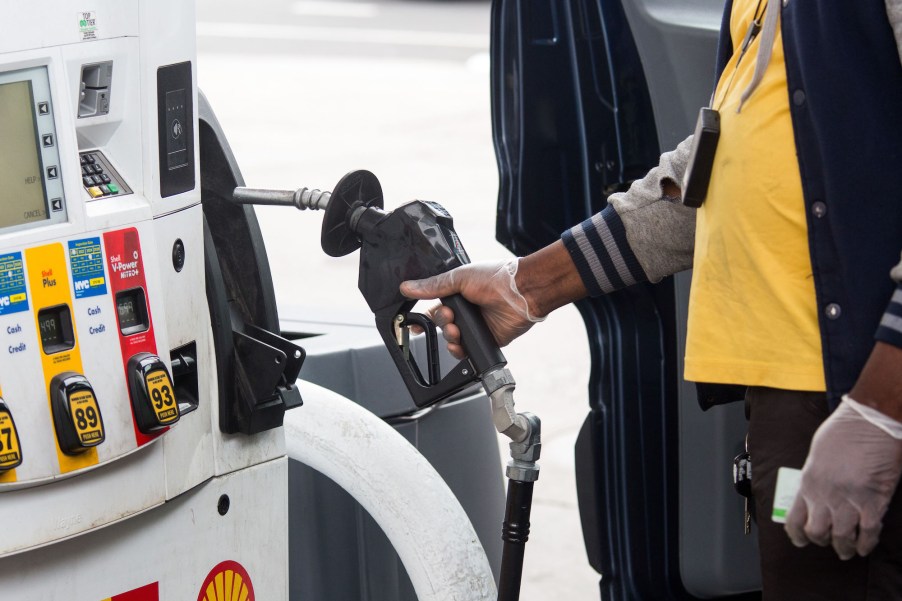
Are You Guilty of Believing These Fuel Economy Myths?
Cars help people get around, and they need fuel to do that. While there are some tricks you can use to improve your vehicle’s fuel economy, there are also many fuel economy myths. They revolve around the kind of fuel you use, how to start your car, which transmission is better, and more.
When the federal Department of Energy and the Environmental Protection Agency launched FuelEconomy.gov, they set out to bust some common myths that consumers had about cars and fuel economy. The results are enlightening. Some of these myths seem to be perpetuated by car dealerships and gas stations trying to make an extra buck. Others are old wives’ tales passed down. No matter what you believe about the fuel you put in your car’s engine, here are three of those myths you can fact-check right now.
Myth 1: Using premium fuel improves fuel efficiency
If your car takes fuel, not diesel, you know there are a few kinds available. Regular, plus, and premium are the main three, but some flex-fuel cars take E85. Despite the different types, there’s no solid proof that one makes your vehicle more efficient than the other. The main reasons to use premium are if your car was designed for it (although it will still work with regular fuel), knocks severely with regular fuel, or is used for heavy-duty operation.
Knocking occurs when the engine has trouble during the ignition process and high heat and pressure occur inside. It can lead to engine damage over time and decrease its performance. Your owner’s manual will let you know if the manufacturer recommends premium fuel and what conditions to use it under, such as towing. You can also visit FuelEconomy.gov to learn how to select the right octane level. Bottom line, you’ll likely experience little benefit from using premium fuel over regular.
Myth 2: You have to drive a small car to get good fuel economy
Though it used to be that smaller vehicles got better fuel economy, that isn’t true any longer. Technology has rapidly advanced, bringing features such as electric and hybrid drivetrains, cylinder deactivation, direct fuel injection, turbocharging, advanced transmissions, low-rolling resistance tires, and aerodynamic designs. These advances allow standard and even larger vehicles to be more fuel-efficient.
In fact, for the 2021 model year, more than half of the top 10 most efficient vehicles are midsize or large. That even excludes EVs, making this fact even more impressive. It’s things like adding bike racks to your car that affect fuel economy more than the kind of fuel you use or the size of your vehicle.
Myth 3: All vehicles are tested for fuel economy
Seeing EPA ratings for miles per gallon (mpg) listed on almost every vehicle on the lot, you might think it’s required for every car. The truth is, though, testing regulations require only vehicles that have a gross vehicle weight rating (GVWR) under a certain threshold. For light-duty passenger vehicles, those under 10,000 pounds are tested. For pickup trucks and cargo vans, it’s 8,500 pounds or less.
With that in mind, several popular models of trucks — like the Ford F-250, Chevy 2500, and Dodge 2500 — don’t make the list. Though a number might be listed, there’s no official EPA rating, and it’s probably a manufacturer’s guesstimate. Regardless, there are some very fuel-efficient trucks on the road worth checking out.
Does fuel economy affect your decision to buy?
For some consumers, fuel economy affects their buying decision. Fuel efficiency can make a car cost-effective. That’s why it matters. For other car shoppers, the type of car and its comfort are higher priorities.
For more myths about fuel economy, visit FuelEconomy.gov, where you’ll find several other misconceptions about how vehicles use fuel.


